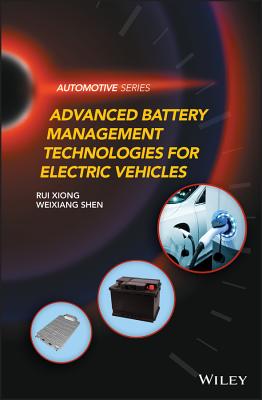Transitions to Alternative Transportation Technologies--Plug-in Hybrid Electric Vehicles (Paperback)
National Research Council, Division on Engineering and Physical Sciences, Board on Energy and Environmental Systems, Committee on Assessment of Resource Needs for Fuel Cell and Hydrogen Technologies
- 出版商: National Academies
- 出版日期: 2010-05-29
- 售價: $1,890
- 貴賓價: 9.5 折 $1,796
- 語言: 英文
- 頁數: 70
- 裝訂: Paperback
- ISBN: 0309148502
- ISBN-13: 9780309148504
無法訂購
買這商品的人也買了...
-
 深入淺出 Java 程式設計, 2/e (Head First Java, 2/e)
深入淺出 Java 程式設計, 2/e (Head First Java, 2/e)$880$695 -
 Spring 程式高手秘笈 (Spring: A Developer's Notebook)
Spring 程式高手秘笈 (Spring: A Developer's Notebook)$650$514 -
 MySQL 5 徹底研究, 3/e (The Definitive Guide to MySQL 5, 3/e)
MySQL 5 徹底研究, 3/e (The Definitive Guide to MySQL 5, 3/e)$690$538 -
 最新計算機組織與結構 (Modern Computer Organization and Architecture, 2/e)
最新計算機組織與結構 (Modern Computer Organization and Architecture, 2/e)$600$588 -
 AutoMod 模擬軟體設計與應用
AutoMod 模擬軟體設計與應用$580$458 -
 CCNA 網路探索指南:網路基本概論 (Network Fundamentals, CCNA Exploration Companion Guide)
CCNA 網路探索指南:網路基本概論 (Network Fundamentals, CCNA Exploration Companion Guide)$720$569 -
 AutoCAD 2010 特訓教材-基礎篇
AutoCAD 2010 特訓教材-基礎篇$630$498 -
 Linux 驅動程式開發實戰 (Essential Linux Device Drivers)
Linux 驅動程式開發實戰 (Essential Linux Device Drivers)$750$638 -
 親手打造部落格的家:WordPress 架站、管理、經營
親手打造部落格的家:WordPress 架站、管理、經營$500$395 -
 網路規劃與管理實務, 3/e
網路規劃與管理實務, 3/e$570$542 -
 鳥哥的 Linux 私房菜-基礎學習篇, 3/e
鳥哥的 Linux 私房菜-基礎學習篇, 3/e$820$648 -
 Google!Android 2 手機應用程式設計入門, 3/e
Google!Android 2 手機應用程式設計入門, 3/e$530$419 -
 深入淺出 Android 遊戲程式開發範例大全
深入淺出 Android 遊戲程式開發範例大全$620$484 -
 Google Android SDK 開發範例大全 2
Google Android SDK 開發範例大全 2$890$757 -
 PHP 6 與 MySQL 基礎學習教室
PHP 6 與 MySQL 基礎學習教室$560$476 -
 電腦網路原理
電腦網路原理$250$198 -
 掌握 C# 4.0 設計概要
掌握 C# 4.0 設計概要$490$417 -
 商業智慧
商業智慧$480$470 -
 最嚴選 PHP 案例模組開發講座
最嚴選 PHP 案例模組開發講座$580$458 -
 王者歸來 Java Web 整合開發─ JSP + Servlet + Struts + Hibernate + Spring
王者歸來 Java Web 整合開發─ JSP + Servlet + Struts + Hibernate + Spring$980$833 -
 iPhone 遊戲開發之練-前進 App Store 最強指南 (Beginning iPhone Games Development)
iPhone 遊戲開發之練-前進 App Store 最強指南 (Beginning iPhone Games Development)$790$672 -
 Android 案例開發完全講義
Android 案例開發完全講義$580$458 -
.NET 網路與 I/O 技術手冊, 2/e
$620$490 -
 Google Android 2.X 應用程式開發實戰, 2/e
Google Android 2.X 應用程式開發實戰, 2/e$580$458 -
 Android 酷樂誌─精選軟體超值特輯
Android 酷樂誌─精選軟體超值特輯$299$236
相關主題
商品描述
For multi-user PDF licensing, please contact customer service.
The nation has compelling reasons to reduce its consumption of oil and emissions of carbon dioxide. Plug-in hybrid electric vehicles (PHEVs) promise to contribute to both goals by allowing some miles to be driven on electricity drawn from the grid, with an internal combustion engine that kicks in when the batteries are discharged. However, while battery technology has made great strides in recent years, batteries are still very expensive.
Transitions to Alternative Transportation Technologies--Plug-in Hybrid Electric Vehicles builds on a 2008 National Research Council report on hydrogen fuel cell vehicles. The present volume reviews the current and projected technology status of PHEVs; considers the factors that will affect how rapidly PHEVs could enter the marketplace, including the interface with the electric transmission and distribution system; determines a maximum practical penetration rate for PHEVs consistent with the time frame and factors considered in the 2008 Hydrogen report; and incorporates PHEVs into the models used in the hydrogen study to estimate the costs and impacts on petroleum consumption and carbon dioxide emissions.
The nation has compelling reasons to reduce its consumption of oil and emissions of carbon dioxide. Plug-in hybrid electric vehicles (PHEVs) promise to contribute to both goals by allowing some miles to be driven on electricity drawn from the grid, with an internal combustion engine that kicks in when the batteries are discharged. However, while battery technology has made great strides in recent years, batteries are still very expensive.
Transitions to Alternative Transportation Technologies--Plug-in Hybrid Electric Vehicles builds on a 2008 National Research Council report on hydrogen fuel cell vehicles. The present volume reviews the current and projected technology status of PHEVs; considers the factors that will affect how rapidly PHEVs could enter the marketplace, including the interface with the electric transmission and distribution system; determines a maximum practical penetration rate for PHEVs consistent with the time frame and factors considered in the 2008 Hydrogen report; and incorporates PHEVs into the models used in the hydrogen study to estimate the costs and impacts on petroleum consumption and carbon dioxide emissions.













